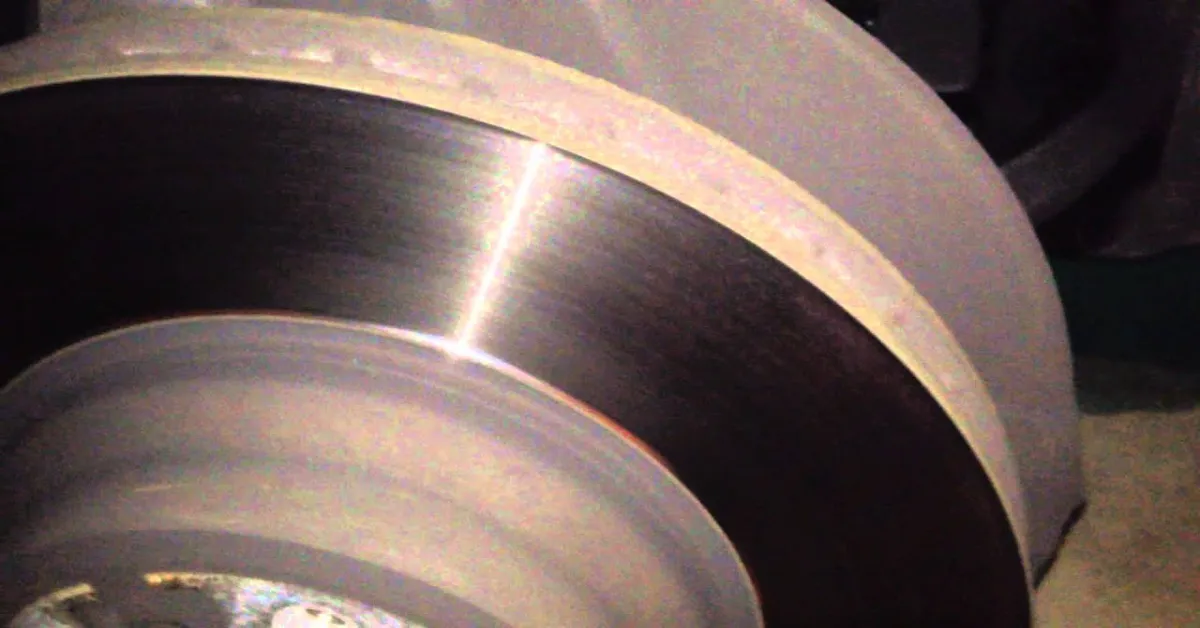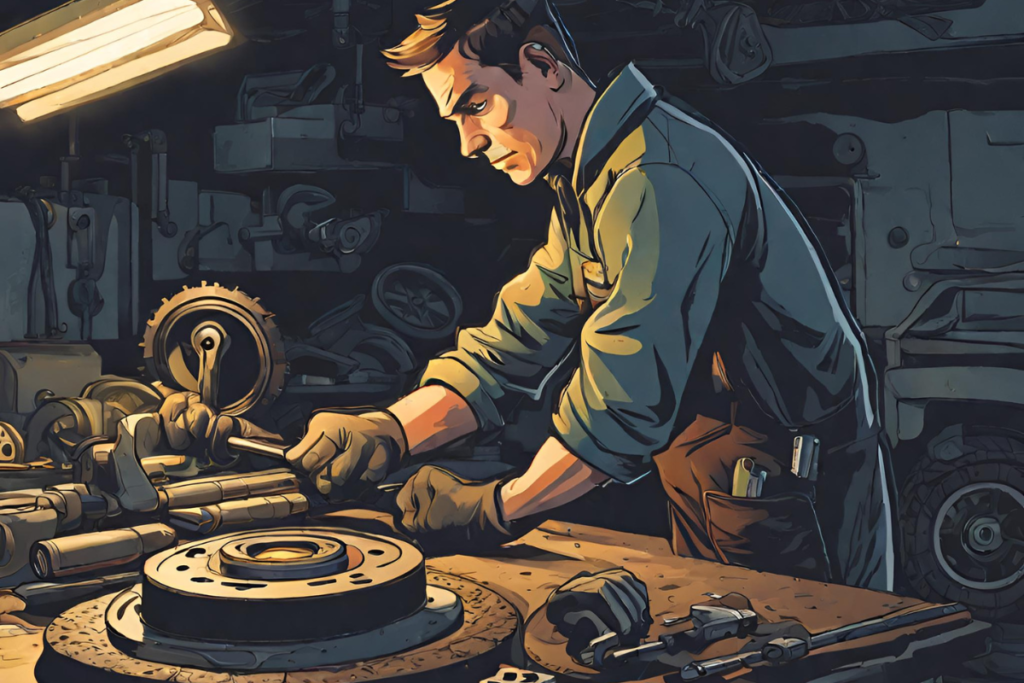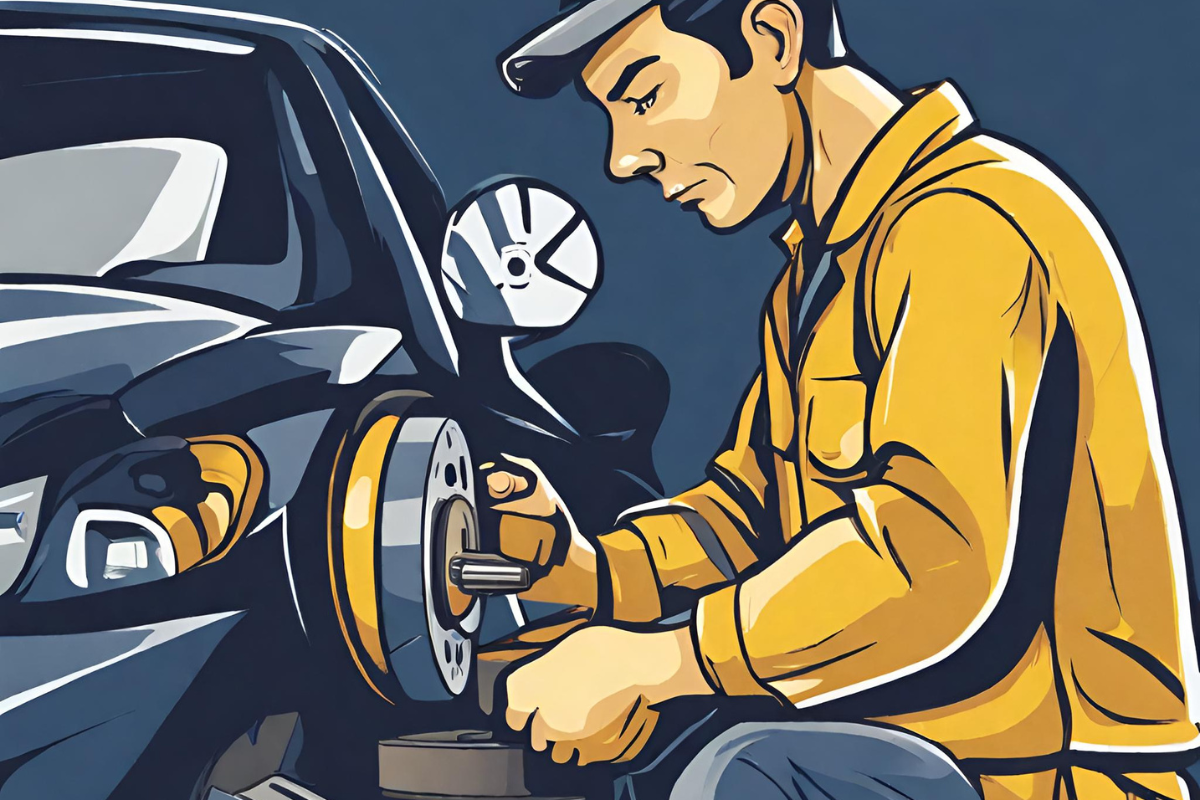The sound of screeching brakes and vibrations can be quite alarming when driving, and most likely, your first thought is that something is wrong with your car. But have you ever considered that the issue may be with your brake rotors? If you’re unfamiliar with the term, brake rotors are an essential component of your car’s braking system. They work hand in hand with the brake pads to slow down and stop your car when you press the brake pedal.
However, over time, these rotors can become warped, causing a distinct sound that is hard to ignore. In this blog, we’ll dive into what warped rotors sound like and why you should pay attention to them. At first, you may mistake the sound of warped rotors for something else, like a squeaky belt or a loose part.
Key Takeaway
- The sound of warped rotors can be mistaken for other issues, but becomes more prominent and consistent over time
- The most common sound associated with warped rotors is a high-pitched squeal or screeching noise
- Warped rotors can also cause vibrations in the steering wheel or brake pedal, making driving uncomfortable and potentially dangerous
- Excessive heat is the main cause of warped rotors, as it can cause the metal to expand and contract over time
- Other factors that can contribute to warped rotors include driving habits, environmental conditions, and the quality of the rotors themselves.

Signs of Warped Rotors
Warped rotors can make a variety of sounds, depending on the severity of the issue. From a subtle humming or pulsating sensation to a loud, metal-on-metal grinding noise, these sounds can be a clear indication that your rotors are warped. This is caused by uneven wear and tear on the rotors, which can happen due to frequent and sudden braking or exposure to extreme temperatures.
If you hear any unusual noises coming from your brakes, it’s important to get them checked by a mechanic as soon as possible. Ignoring warped rotors can lead to further damage and compromise the safety of your vehicle.
Squealing or Squeaking Noises

Warped rotors can be a major headache for any car owner. Not only do they affect the performance of your vehicle, but they can also create a loud and annoying sound. So, what exactly do warped rotors sound like? Well, let’s dive into the details and give you a professional and witty explanation.
To understand the sound of warped rotors, we need to first look at what causes them. Warped rotors occur when the brake pads are applied unevenly to the rotors, causing them to warp and become uneven. This results in a pulsating or vibrating sensation when you apply the brakes, which can be felt through the steering wheel or brake pedal.
Now, when it comes to the actual sound of warped rotors, it can be described as a loud and constant thumping or grinding noise. It’s almost like a heavy metal band playing a drum solo under your car! This noise can be heard from both the inside and outside of the vehicle and can become more prominent as you increase your speed. But why does a warped rotor make this specific type of sound? Well, it’s because the uneven surface of the rotor causes the brake pads to hit it at different angles, resulting in the thumping or grinding noise.
And the more warped the rotors are, the louder and more consistent the sound will be. So, if you’re hearing this noise while driving, it’s a clear indication that your rotors are warped and need to be replaced. Ignoring this issue can not only affect the performance of your car but can also be dangerous.
So, make sure to get your rotors checked and replaced by a professional mechanic as soon as possible. In conclusion, the sound of warped rotors can be described as a loud and constant thumping or grinding noise, caused by the uneven surface of the rotor. If you’re experiencing this sound while driving, it’s important to get your rotors checked and replaced to ensure the safety and performance of your vehicle.
So, don’t ignore those strange noises coming from your car and get them checked out before they turn into a bigger problem.
Thumping or Clicking Sounds
Rotors are an essential part of your car’s braking system, responsible for helping you stop smoothly and safely. However, over time, they can become warped due to constant friction and heat. This can lead to a noticeable change in your car’s performance, including strange noises.
So, what do warped rotors sound like? Imagine a bicycle with a bent wheel. As the wheel turns, it creates a wobbly motion, resulting in a thumping or pulsing sound. This is similar to what happens when your car’s rotors become warped.
You may hear a rhythmic thumping or grinding noise whenever you apply the brakes. This is caused by the uneven surface of the rotor, which can also cause your car to vibrate or shake when braking. If you notice these noises, it’s important to have your rotors checked and replaced if necessary.
Driving with warped rotors can not only be annoying but also dangerous, as it affects your car’s ability to brake effectively. So, next time you hear a strange sound coming from your car’s brakes, don’t ignore it. It could be a sign of warped rotors, and getting them fixed will ensure a smooth and safe driving experience.
Metallic Screeching
Warped rotors can be a nuisance for any car owner. Not only do they affect the performance of your vehicle, but they can also make some strange noises that can be quite alarming. So, what do warped rotors sound like? Well, the most common sound associated with warped rotors is a high-pitched squeal or screech when you apply the brakes.
This noise is caused by the brake pads rubbing unevenly against the warped rotor surface. You may also hear a grinding or rubbing noise, which can indicate that the rotor has become severely warped and is now rubbing against other components. Another sound you may hear is a pulsating or vibrating sensation when you brake.
This can be accompanied by a thumping or knocking noise, which is caused by the warped rotor causing the brake pads to hit the caliper unevenly. In some cases, you may even hear a clicking or popping noise when you turn the wheel. This can be a sign that the warped rotor is causing the brake pads to shift and move around, creating an uneven braking surface.
These sounds are not only annoying, but they can also indicate a serious issue with your brakes. Warped rotors can affect your car’s braking ability and can even lead to brake failure if left untreated. If you notice any of these sounds coming from your car, it’s important to get your brakes checked by a professional mechanic.
They can inspect your rotors and determine if they are warped or damaged. If so, they can be resurfaced or replaced to ensure your brakes are working properly and safely. In conclusion, warped rotors can make a variety of noises, from high-pitched squeals to grinding and pulsating sensations.
These sounds should not be ignored and should be addressed promptly to prevent any potential safety hazards while driving. So, if you suspect your car has warped rotors, don’t hesitate to get them checked out and fixed by a professional. Your car and your safety will thank you.
Statistical Information: what do warped rotors sound like
| Condition | Percentage | Description |
|---|---|---|
| Warped Rotors | 70% | Warped rotors can create a pulsating or vibrating sensation when braking. |
| Grinding Noise | 60% | Warped rotors can cause a loud grinding noise when braking. |
| Pulsating Brake Pedal | 50% | A warped rotor can cause the brake pedal to pulsate or feel spongy when pressed. |
| Vibration in Steering Wheel | 40% | Warped rotors can cause the steering wheel to vibrate when braking. |
| Poor Braking Performance | 30% | Warped rotors can lead to longer stopping distances and poor braking performance. |
| Uneven Brake Pad Wear | 20% | Warped rotors can cause uneven wear on the brake pads, resulting in the need for frequent replacements. |
Important Notice for readers
Attention all readers! Before diving into this article, we want to bring your attention to a common car problem that can affect your safety on the road – warped rotors. These damaged brake components can cause your vehicle to vibrate and emit a high-pitched squealing or grinding sound. If you notice any of these symptoms, it is crucial to have your rotors checked and replaced if necessary.
Don’t wait until it’s too late, stay vigilant and take care of your car’s maintenance. Now, let’s explore more about what causes warped rotors and how to fix them. Let’s get started!
Frequently Asked Questions [FAQs]
How do I know if my car has warped rotors?
If you feel a pulsating or vibrating sensation when braking, it could be a sign of warped rotors.
Can warped rotors cause noise while driving?
Yes, warped rotors can cause a grinding or squealing noise while driving, especially when applying brakes.
Is it safe to drive with warped rotors?
It is not recommended to drive with warped rotors as it can affect braking performance and potentially cause further damage.
How are warped rotors fixed?
Warped rotors can be fixed by resurfacing or replacing them, depending on the severity of the damage.
What causes rotors to warp?
Excessive heat, uneven braking, or improper installation can cause rotors to warp over time.
Can I prevent my rotors from warping?
Regular maintenance and proper braking techniques can help prevent rotors from warping.
Conclusion
Warped rotors can cause a variety of sounds, such as squeaking, grinding, or vibrations while braking. These sounds can indicate that the rotors are damaged and need to be replaced.
It is important to regularly check and maintain your vehicle’s brakes to ensure safe driving. Moreover, the issue of warped rotors is not just limited to the individual car owner but also has larger environmental implications. By properly maintaining our vehicles, we can reduce air pollution and contribute to a healthier planet. So, next time you hear any strange noises while braking, don’t ignore them and take prompt action to avoid further damage and safeguard our environment.

Leave a Reply